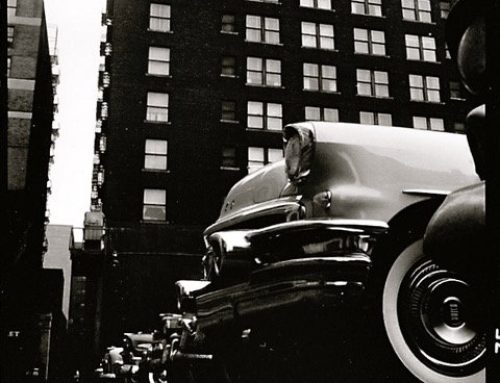By Aaron Foley
Uh-oh, it finally happened. You’re caught in a debate — most likely on Facebook — about gentrification in Detroit. And everything was going just fine until someone called you — you! — a cause of gentrification. “But wait, how can I be a gentrifier?” you’re thinking. You played by all the rules, or at least you thought. You don’t feel like a gentrifier. You don’t look like one. How can you be one?
I think Detroiters have gotten smarter about what gentrification is and isn’t, so accusing someone of being a gentrifier isn’t an empty slur. People know what they’re saying when they lob that term. So have you been accused? Before you go writing that hasty post on Medium, here’s what you can do instead.
1. Relax. Take a deep breath. A riot is not going to happen. Clarity and calm is imperative. Get up, stretch, take a lap. Go get a Drought juice. Clear your mind a little.
2. Stay away from social media.The worst thing an accused gentrifier can do is immediately react. Ever heard the saying “a hit dog will holler?” If you think a nasty sentiment is about you when it’s not about you specifically, you might be guilty. And the first thing a guilty person does is defend themselves. But when your defense is going to sound offensive — because you feel offended — that’s just going to exacerbate the situation. Close the laptop. Put the phone down.
3. Realize what privileges you have. Yes, you still have privilege — even if you are living in a depressed city. Even if you have lived here for more than five years. Even if you don’t live in one of the trendy neighborhoods. If there’s a chance that somehow you’ll benefit from Detroit’s perceived rebound, and your neighbor may not, that’s a privilege. If you have the mobility to move when things get tough and your neighbor doesn’t, that’s privilege. (And realize that when I talk about privilege, I’m not using some code for “white privilege.” Anyone can be accused of being a gentrifier, not just white people.)
4. Speaking of white people, no one is accusing you of being a gentrifier because you’re white. People are being accused of gentrifying because they gentrify. People of color are asked to “not see race” all the time. Here’s a chance for you, dear white person, to do the same.
5. Don’t say “the g-word.” Whenever people who aren’t black say “the n-word,” or people who aren’t gay say “the f-word,” we’re consciously minding our use of a word that’s hurtful and deliberate. Putting the word “gentrification” in that same context, as if the word “gentrification” is a slur that can never be said without hurting someone, or that only certain populations are allowed to use that word, is erroneous. Since when did being called a gentrifier rise to the same level of being called a faggot? Don’t say “the g-word.” Say gentrification.
6. Acknowledge that gentrification happens, even in Detroit. We always think of gentrification as what happened in San Francisco — a bunch of tech-bros move into the neighborhood, drive up the prices. and drive out the culture. Or we think it looks like those Brooklyn neighborhoods where artisan coney islands and locally sourced arugula have replaced Chinese takeout. Or Austin, whose image as a progressive, liberal haven is sold under the guise of paying for what you get — which, in this case, is a higher cost of living in exchange for securing a particular worldview. In Detroit, it’s none of these things — at least, not yet — but it still happens. Changing the name of a neighborhood, for example, is a form of gentrification. Driving out artists, and replacing them with Gilbert-approved “artists” can be a form of gentrification. Buying a building, sitting on it, then selling it to drive up the cost of the real estate market is a form of gentrification.
When you say that putting new windows in the train station isn’t gentrification, or rehabbing a building that was previously vacant, you’re absolutely right. When you say that safer streets, more street lights, increased bike paths aren’t gentrification, you’re also correct. But to say that it doesn’t exist is incorrect, because we are seeing it — just not in the way that you would think.
7. Listen. Simply listen. Listen to what people are saying about their concerns. Wait your turn to speak. Wait. Wait. Not quite yet. Just a second. Listen some more. OK. Now it’s your turn. Because far too often, we don’t do enough listening. People go on the defensive too soon, and don’t hear what people are saying. Let others talk for a change — particularly if they’re talking about a neighborhood they love just as much as you do. (Maybe sip another Drought while you listen?)
8. Settle. The most important thing to do is to not walk away from an accusation of gentrification angry. Acknowledge that you might share some characteristics with a gentrifier. Or state your case as to why you might not be one. Either way, there’s an opportunity to work with those who feel threatened. I’m not sure if there’s a Gentrifiers Anonymous meeting you can go to if you are actually one of those people. But the very least you could to is not be upset with your neighbor. And the most you can do is try to make sure your neighbor remains your neighbor.
___
Aaron Foley writes the On Detroit column for Belt and is the author of How To Live In Detroit Without Being A Jackass, published by Belt.
Banner photo by jodelli







Excellent as always Aaron!
What in the living hell?
Good fun and many great lines. I think my favorite was the one about “those Brooklyn neighborhoods where artisan coney islands and locally sourced arugula have replaced Chinese takeout.”